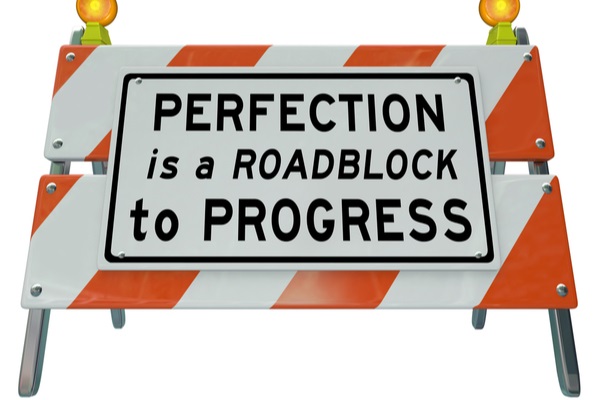Have you ever found yourself postponing tasks for another time? Are you prone to starting projects only to be left with too many unfinished DIY projects on your hands? Do you often get sucked into the endless joys of the internet when you’re supposed to finish a project? All of that means that you are a victim of procrastination.
Procrastination is making up excuses instead of actually acting. Dictionary.com defines procrastination as putting off or delaying something that needs to be done. Society vaguely compares it with laziness, but the comparison doesn’t quite fit. Laziness is when you have something to do, choose not to do it while also not doing any other stuff. Procrastinating is putting off doing something while you are doing something else.
A good example for procrastination would be when you have to do the dishes but choose to keep scrolling on social media, while laziness is having to do the dishes but deciding to just not do that or anything else. We all have had moments when we procrastinated for various reasons so we all know what it is. However, if you don’t want to be left with too many unfinished projects, we should understand why we procrastinate in the first place before we look into overcoming procrastination.
Causes of Procrastination
There are several reasons why procrastination happens and why we allow it to happen even if we are completely aware that it’s bad for us. Don’t get me wrong, having fun is not bad, but postponing everything that requires your attention in order to have fun can have serious psychological consequences
1. Perfectionism

Many of us struggle with perfectionism in everyday life. Dinner, unfinished DIY projects or school grades should be perfect and if we start with the perception that it might not be perfect many don’t even try. The psychology of procrastination details how one’s mindset can affect the end result. A fixed mindset results in the belief that one’s skill is set in stone and can not be developed, while a growth mindset allows abilities to grow. If you believe that your talent is not something to nurture and develop through hard work then you’ll be left with too many unfinished projects.
Just aim to do your best and be satisfied with the result because even if the result is not perfect, it’s better than nothing. Through imperfection, you’ll learn and your skill will improve which will help to overcome procrastination. Like a muscle, repeated actions improves the act itself.
2. Fear of the unknown

The psychology of procrastination explains that sometimes people choose not to act because they fear something that they don’t know. Think about a lightbulb that always goes out a few days after you replace it with a new one. This might mean that you have problems with the electrical circuit in your home. This might also lead to an electrical malfunction that can cause serious damage to your home. You know you should call an electrician to check it out and fix it but you think that all the electrical circuits in your home might need fixing which would be expensive, so you put it off. Like this, a problem that might be fixed by replacing the electrical source for that lightbulb alone can turn into something much more dramatic just because you postponed getting it fixed.
Fear to act because the truth might be something that we don’t want to hear is a way to postpone things that require your attention. Ignorance is bliss … but not really as dealing with something now will make the whole situation less stressful in the future.
3. I’ll do it later

Like Scarlett O’Hara said in Gone with the Wind “I’ll think about that tomorrow. Tomorrow is another day.” we all said at least once in our lives. The problem here is that we take tomorrow, or any other time that is not now, for granted. There are two variants explained in the psychology of procrastination that works here. The first one is the Hot-Cold Empathy Gap which results in postponing activities for the future. For whichever reason you decide to leave washing the dishes for later, maybe later you’ll fall asleep or have a headache or get invited to go somewhere else, but because your past self did not feel like washing the dishes, now you can’t go to sleep or go out. Now, how’s that fair for your future self?
The second variant is Dynamic Inconsistency. Your current decision differs from a past decision. Let’s say you have an exam tomorrow. The professor tells you that for a $10 fee you can get an extra day to prepare and you choose to take it. Chances are that if the professor would have offered the same option a month before the exam you would have declined. What you want now isn’t the same as what you wanted even a week ago.
Try to look at your future self and see if you like not having to do a specific task. Try to imagine the many options available for your future self if they no longer have to spend time on a particular task. Overcoming procrastination can be done through prioritizing what is most important and focusing on that.
4. Unsure how to start

These are too many distractions and they happen too often in our daily lives. Whether it’s email, social media, people, gossiping, or anything else that distracts you from your task, you need to learn to remove temptation. It’s so easy to take breaks from your task but you have to respect your goal in order to achieve them.
Try deleting games and apps from your phone, put your phone on airplane mode, use noise-canceling headphones, block certain websites or simply close your door. Set a deadline for your project and allow for as little interruption as possible. If you decide that by 6 PM your work would be finished, then make sure it is. If you decide that you want to bench press twice your bodyweight by the end of the year, make sure you stick to it. Set ambitious but attainable goals so that failure will not demotivate you.
Conclusion
These are the most common causes of procrastination but there are many others that can affect your unfinished DIY projects. What is very important is that you identify what causes procrastination for you and find ways to work through it. Overcoming procrastination is an incredibly honest process but it’s the process that can help you grow, develop and not feel like you are stuck. Among the effects of procrastination, the most acknowledged is depression as countless unfinished projects or actions can lead you to feel inadequate and unhappy with yourself.
The ways in which you can overcome procrastination are simple but they do require consistency. You can even turn to tricks and rewards after finishing steps in your project, but being aware of the reason for which you are working on that project is just as important. Learn to develop a healthier more fulfilling lifestyle and the benefits will come in no time.


